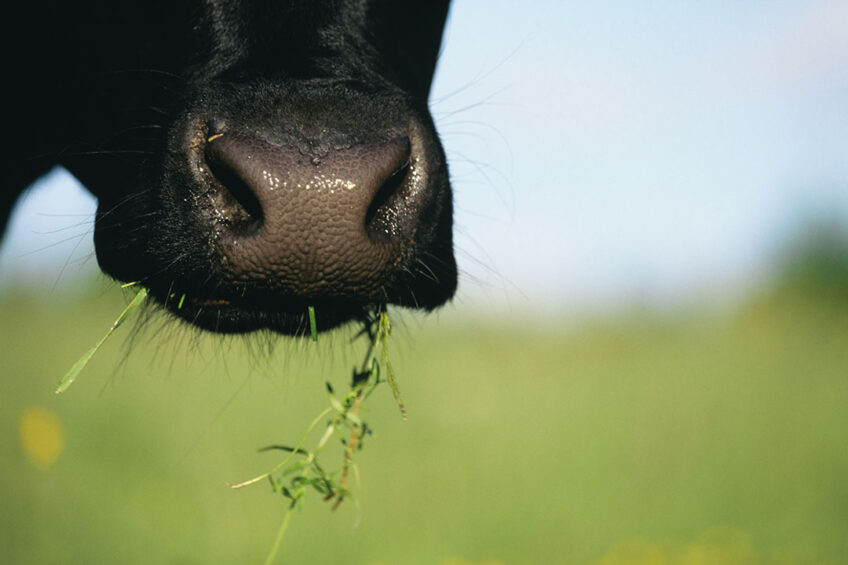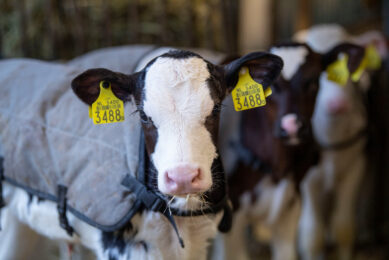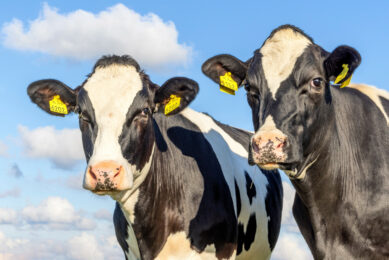Dairy diary: November’s business update

What did the month of November unveil in the dairy industry? Let’s see what took place and what’s new…
Lely introduces Quaress Din
Lely introduces Lely Quaress Din, the successor of the well-known udder care product Lely Astri Din. For farms where udder health is well under control, but environmental circumstances demand some additional care.
New European regulations required Lely to renew the registration of Lely Astri Din. An udder care spray designed for use in combination with the Lely Astronaut milking robot. Lely has used this situation to further develop the product. A product with improved disinfection, better care, a new purple color and now registered as Lely Quaress Din.
Lely Quaress Din is best suitable in circumstances where udder health is under control but some extra skin conditioning is desired. Additional care is derived from the presence of glycerin, sorbitol and propylene glycol emphasizing a supple and healthy skin. These components are known for moisturizing and anti-aging. The spray kills both contagious and environmental bacteria. The main component lactic acid is by nature mild, caring and disinfecting. By adding a surfactant, the effectiveness of the lactic acid is enhanced.

INRA and Phileo by Lesaffre: new partnership
INRA and Phileo by Lesaffre have signed a partnership agreement in the field of nutrition and animal health. This partnership strengthens existing collaboration and will optimise many projects around a shared goal: the inclusion of agricultural and food systems in a sustainable and economically viable development.
This partnership agreement between INRA and Phileo by Lesaffre seals a partnership initiated fifteen years ago. Initially focused on demonstrating the beneficial effects of probiotics on the production performance of a number of species (ruminants, pigs, poultry), the collaboration between the two partners has evolved progressively towards more in-depth studies. These have involved the use of increasingly sophisticated tools in the field of metagenomics, transcriptomics and metabolomics applied to immunology and microbiology, areas for which INRA has provided its expertise, particularly through several CIFRE theses. Some examples among the topics studied:
• the impact of probiotics on rumen physiology
• an innovative thermodynamic approach
• the benefits derived from yeast-based products in relation to colibacillosis-related inflammation in piglets; in ruminants
• the effects on the immune system of beta-glucans
• the ability of dry yeasts to resist pelletisation processes;
In the aquaculture sector:
• the potential of yeast extracts in the substitution of fishmeal for carnivorous species, via a metabolomic approach (within the framework of the NINAQUA1 project).In recent years, the fruit of the collaboration with INRA has contributed to the development of innovative Phileo solutions and helped to advance health through nutrition.
Kemin opens Innovation and Technology Center
Global ingredient manufacturer, Kemin Industries, has opened a new 4,200sqm Innovation and Technology Center at its regional headquarters in Zhuhai, China. The new facility is a US$14 million investment in Kemin’s research and development efforts in the country.
Scientists will be employed to work at Kemin’s new facility in multiple industries, including animal nutrition and health, aquaculture, food technologies, pet food, specialty crop improvement.
“This new laboratory will allow Kemin to harness the talent and creative thinking of Chinese scientists and the insights of our customers to develop the technologies they need,” said Dr Chris Nelson, Kemin president and CEO.

Biomin R&D head named Among Highly Cited Researchers
Animal nutrition firm Biomin announced that Research & Development director Dr Gerd Schatzmayr has been named a Highly Cited Researcher, according to the 2019 list from the Web of Science Group.
Dr Gerd Schatzmayr has given more than 60 lectures at international scientific congresses and conferences and is author and co-author of more than 100 articles, publications and patents. He joined Biomin in 1999, and currently heads Biomin’s worldwide research and development activities from the Biomin Research Center at the Campus Tulln.
“This recognition reflects well on the entire research and development team at Biomin and the network of leading academic institutions that we work with globally. It is truly a pleasure to conduct research and publish with so many great scientists,” commented Dr Schatzmayr.
Franz Waxenecker, managing director of Biomin, said “We are proud of the Biomin Research Center’s activities under Dr Schatzmayr’s leadership.”
The full 2019 Highly Cited Researchers list and executive summary can be found here, and the methodology can be found here.
SKOV acquires Canadian ventilation company
SKOV A/S, a producer of ventilation and management systems for livestock production, acquired the Canadian company Secco International Inc., a specialist in dairy ventilation systems.
On October 1, SKOV took over 80% of the company, while the two current owners continue to have a 20% share of ownership in the company.
The company was established in the year 2000 and is headquartered in Saint-Hyacinthe near Montréal in the state of Quebec, Canada.
“We have, for a long time, been looking for a company that can complement our current business so that we can also provide climate solutions for dairy barns,” says CEO Jørgen Yde Jensen, SKOV A/S.
The company has a dominant position in the domestic market and has a network of distributors in primarily North America, Europe, Russia, and Japan.
Secco has, for some time, been looking for cooperation with an international company that can ensure its global development and accelerate future growth. The company has placed emphasis on entering into a group with the same core company values.
“We maintain Secco as an independent company with its own brand and sales channels. Also, we are going to utilise the product and market synergies among the two companies,” says Jørgen Yde Jensen.

Alltech and Alimetrics estimate ruminal protein degradability
A laboratory fermentation method for assessing the ruminal breakdown of dietary protein ingredients has been created by Alltech and Alimetrics Research. The technique was developed to evaluate feed protein sources and involves measuring the proportion of certain amino acids that are converted to specific end products over 24 hours.
In the study, scientists compared the rumen degradability and effects on rumen fermentation of 3 protein sources, namely whey protein, soybean meal and yeast-derived microbial protein, and ranked these protein sources according to their degradability by rumen bacteria.
The yeast-derived microbial protein was the most resistant, with less than 15% of the amino acids of interest being converted to end products measured. Additionally, the level of the protein breakdown product, ammonia, from yeast-derived microbial protein was able to be taken up by the rumen bacteria, reducing excess rumen ammonia accumulation. Evaluation of other parameters demonstrated that the yeast-derived microbial protein was able to extensively stimulate rumen fermentation to the same extent as soybean meal.
This data not only suggests that this novel method is suitable for assessing ruminal breakdown of protein feeds, but also that yeast-derived microbial protein could potentially provide a more sustainable, and equally suitable, alternative to products such as soybean meal.

Have dairy industry related business/ product news? Want to feature in the dairy diary? Send an email to: zana.van.dijk@misset.com
Join 13,000+ subscribers
Subscribe to our newsletter to stay updated about all the need-to-know content in the dairy sector, two times a week.











